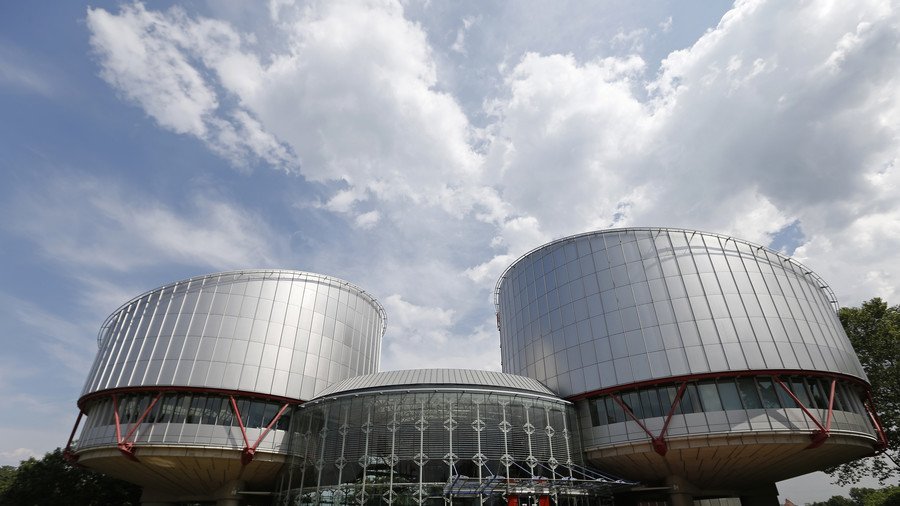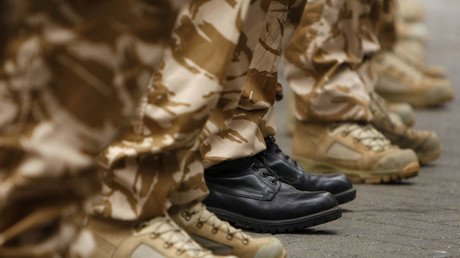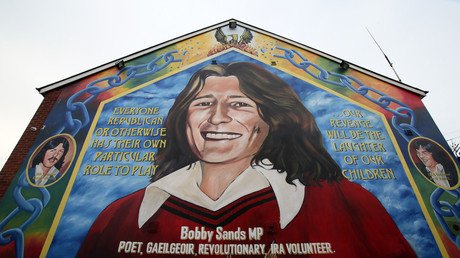Irishmen subjected to CIA-style ‘5 techniques’ by British not tortured – European court

A European court has rejected a request to find that a group of 14 men detained during internment in Northern Ireland suffered torture. The prisoners were subjected to white noise, sleep and food deprivation as well as beatings.
The European Court of Human Rights (ECHR) rejected the Irish government petition to revise a 1978 judgement against the UK and find that the prisoners, known as the ‘hooded men’ were subjected to torture.
The men were exposed to methods known as the “five techniques” – hooding, white noise, stress positions, sleep deprivation, and food deprivation. The practice was applied over an unknown period of four to seven days for an unspecified number of hours at a time. Similar interrogation techniques have since been deployed by the CIA and outlined in a 2014 Senate Torture report.
READ MORE: 10 most shocking facts we found in CIA torture report
The men, who were all Catholic, were detained in 1971 at the height of The Troubles after Northern Ireland used the Special Powers Act to introduce internment without trial for those suspected of being involved in violence. They were hooded and flown by helicopter to a secret location, later revealed as a British Army camp outside Derry in Northern Ireland. Before landing they were dangled out of the helicopter and told they were high in the air, although they were close to the ground. None of the individuals were ever convicted of wrongdoing.
In 1978 the ECHR found that the British authorities’ actions amounted to inhuman and degrading treatment, but not torture. Following a TV documentary in 2014, which brought archived files to light, the Irish government requested a revision of the original judgment.
The documentary arose in part from British and Irish national archive documents found by the @FinucaneCentre and shown to #RTEInvestigates but also from separate extensive broad British archive found by then NUIGHRC's Aisling O'Sullivan for an unrelated project and shared with me
— Rita O'Reilly (@RitaOReilly) March 20, 2018
The Irish government submitted that a psychiatrist who gave evidence as an expert for the British government misled the Commission by saying that the effects of the ill-treatment were short-lived when he knew that the use of the five techniques had long-lasting and severe effects. The government cited archived documents that allegedly revealed the British authorities had tried to prevent the court from accessing the full truth about the five techniques.
British govt, privately, called 'Five Techniques' torture. Now ECtHR disagrees. Go figure. Many political dissenters worldwide must now fear the consequences. Green light for state savages. pic.twitter.com/JJ1gQEyOWS
— Anne Cadwallader (@AnneCadwallader) March 20, 2018
Overall, the court found that the documents did not demonstrate facts which were unknown at the time. It added that it could also not be said that such knowledge might have had a decisive influence leading to a finding of torture, noting that the original judgment had made no reference to the issue of such long-term effects. The revision request was dismissed by a chamber of seven judges by six votes to one.
Amnesty International, who visited the detainees in 1971 and stated then there was evidence of torture at the camp, described today’s decision as “disappointing.” It noted that the ruling is not a statement that the ‘five techniques’ do not constitute torture as it is legally defined today.
READ MORE:'Hooded Men' torture case 'could harm Northern Ireland power-sharing deal'
“What has been revealed in the files withheld by the UK government cannot be denied. These men were tortured, and with approval at the highest levels of government. The record of what these men endured in those interrogation rooms 47 years ago, and the devastating impact on them afterwards, still stands,” Amnesty said.
Think your friends would be interested? Share this story!














